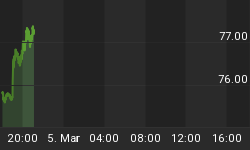Markets are motivated by fear and greed.
Who would dare to question this axiom of received wisdom? When markets go up, they are motivated by greed. When markets go down, they are motivated by fear. Presidential rhetoric established this truth in our cultural lexicon three quarters of a century ago:
The only thing we have to fear is fear itself.
Fear and greed are certainly potent factors in the investor's psychology. It's easy enough to spot the frenzied euphoria of greed in people who suddenly make a decision to buy when a stock is peaking. It's just as easy to spot the hysterical flight mentality of fear in people who sell at the bottom. These irrational behaviors would be amusing if they weren't so destructive.
Nevertheless, fear and greed are not the only market movers and it is dangerous to think of them in this way. If free markets are emotionally unstable, they invite the stabilizing forces of government. If we confess our own collective irrationality, we make ourselves more vulnerable to a visible coercive hand. If we are motivated only by fear, we cannot be free.
When the only confession of guilt we can extract from Alan Greenspan is his misguided faith in free markets, it is important to remember that we never had a free market. Or, if that sounds too purist, it is important to realize that the problems we are currently experiencing have nothing to do with the degree of freedom we enjoyed in our markets.
Freedom is not lawlessness. Where there was fraud there was a lack of proper enforcement, not a lack of government regulation, and certainly not an overabundance of freedom. Where there was reckless speculation, there was artificially low interest rates, not real wealth, and certainly not honest, free market money. If we are not careful with the terms we use to describe the problem, we will make it easier for demogogues to invade the few remaining freedoms in this country.
The dominant story of the decline in our markets goes something like this:
Markets are down because consumers aren't consuming, lenders aren't lending, and employers aren't employing. Why? Fear. Homeowners are afraid of losing their jobs. Banks are afraid of counter-party risks. Companies are afraid of earnings reports. To make matters worse, all this fear starts a negative feedback loop. Companies can't borrow so they fire employees. Unemployed workers can't pay their mortgages, so they default on their loans. Banks can't collect on these mortgages, so then don't lend and companies can't borrow.
So the government steps in and offers to give banks money to lend in exchange for the bad loans on their books. Problem solved, right? Wrong. Banks still aren't lending. Why? Fear. Once these emotionally volatile markets get on a fear jag, it's hard to shock them out of it. More intervention is needed.
This is a great story...if you work for the government. However, it is completely vacuous. It doesn't explain anything. All it does is provide a rationale for government intervention. Here is an alternative story:
The Federal Reserve raised the limits on leverage and lowered its target interest rate. The Federal government insisted that lending institutions lend regardless of default risks. The Fed's action guaranteed that we would be awash in liquidity and DC's action guaranteed that it would be funneled into bad loans.
In addition to the government-induced bad investment, the excessive liquidity produced mal-investment. Paper money is not real wealth. Producing more paper (or digital) money and credit does not increase our physical well being. The supply of real stuff that satisfies our wants and needs remains unchanged with the increase in money and credit, but when more money floods into the markets, it bids up the price of this real stuff. It bids it away from some markets and into others. It starts all kinds of new ventures for those with the wherewithal to borrow the new money.
Unfortunately, the new money starts too many projects. As the paper continues to bid away resources from other markets, eventually people discover there is not enough real stuff to finish all the projects. Some projects must be liquidated in order to finish others. This is a euphemism for saying we have to go through a painful market correction. People lose their companies, their jobs, and their homes as resources are reallocated to a sustainable level of growth.
The market must correct. Resources must be taken away from less productive projects and allocated to more productive ones. Free markets are an amazing mechanism for this kind of resource reallocation. They inspired Adam Smith to imagine an Invisible Hand and Friedrich Hayek to talk about spontaneous order.
It must be frustrating for a government bureaucrat to think that the best solution doesn't involve him in any way -- except to ensure that private property rights are enforced. It must sound like heresy to think government intervention and negligence is largely responsible for the problem. And so, we're not likely to hear this story from our fearless leaders.
Uncertainty is perfectly reasonable at the moment. "Will I be able to make payroll next quarter?" "Will I have a job next month?" "What are the implications of running trillion dollar deficits?" Nobody knows. The idiom de rigueur in analyst circles is "uncharted waters". The only people speaking confidently are politicians and desperate salesmen.
We should think of this lack of confidence as rational uncertainty, not fear. The markets are not in a mess because people are growing more cautious; people are growing more cautious because intervention and negligence has made of mess of the markets.















